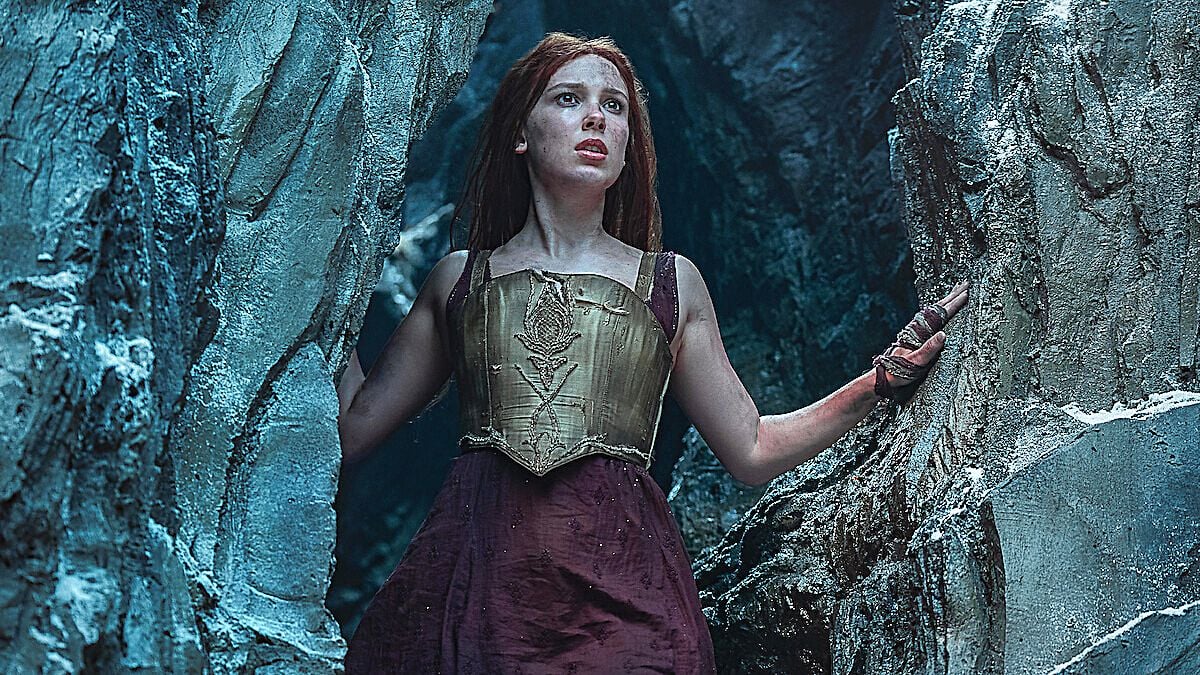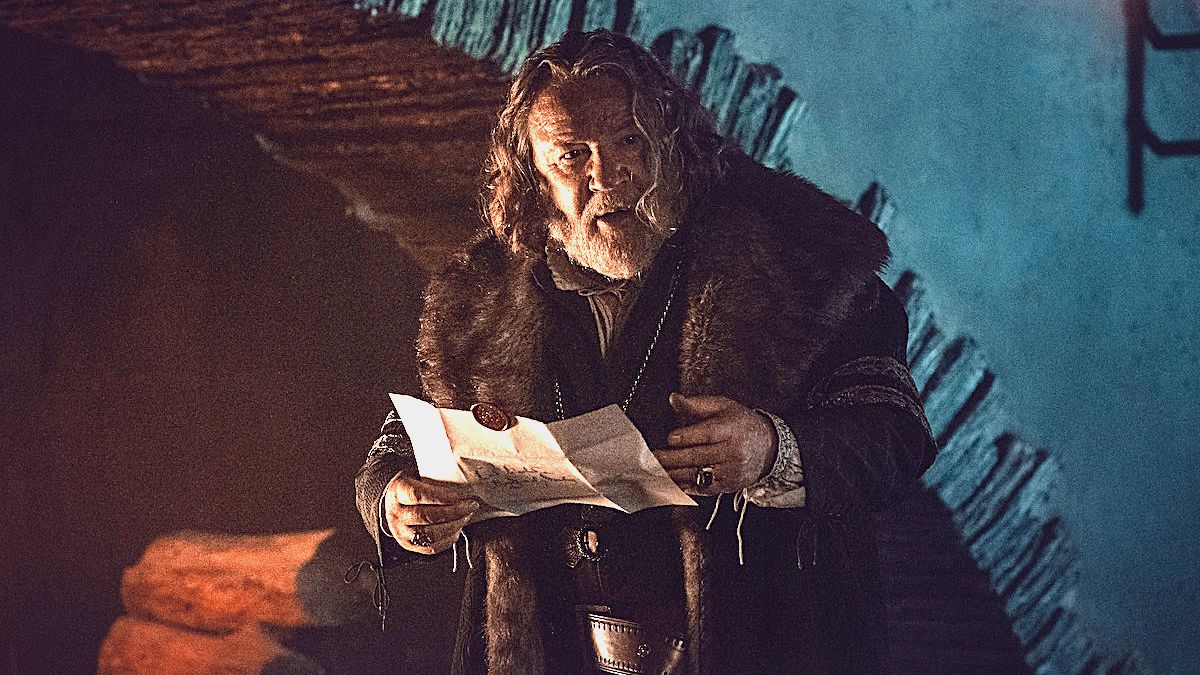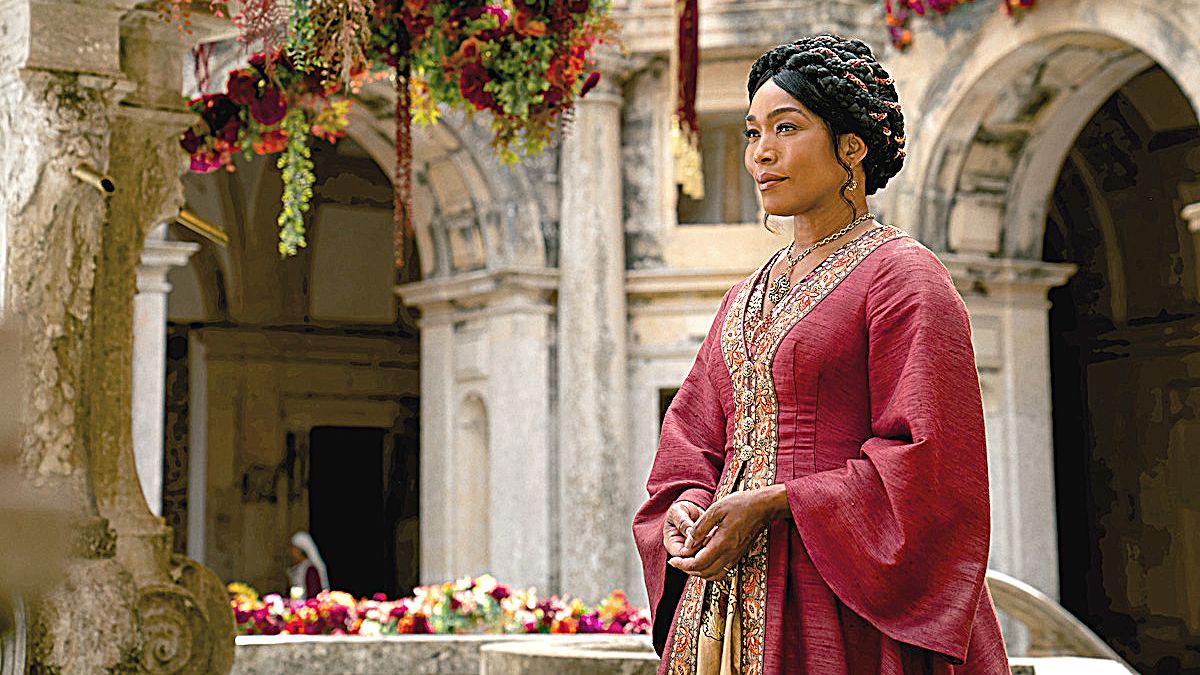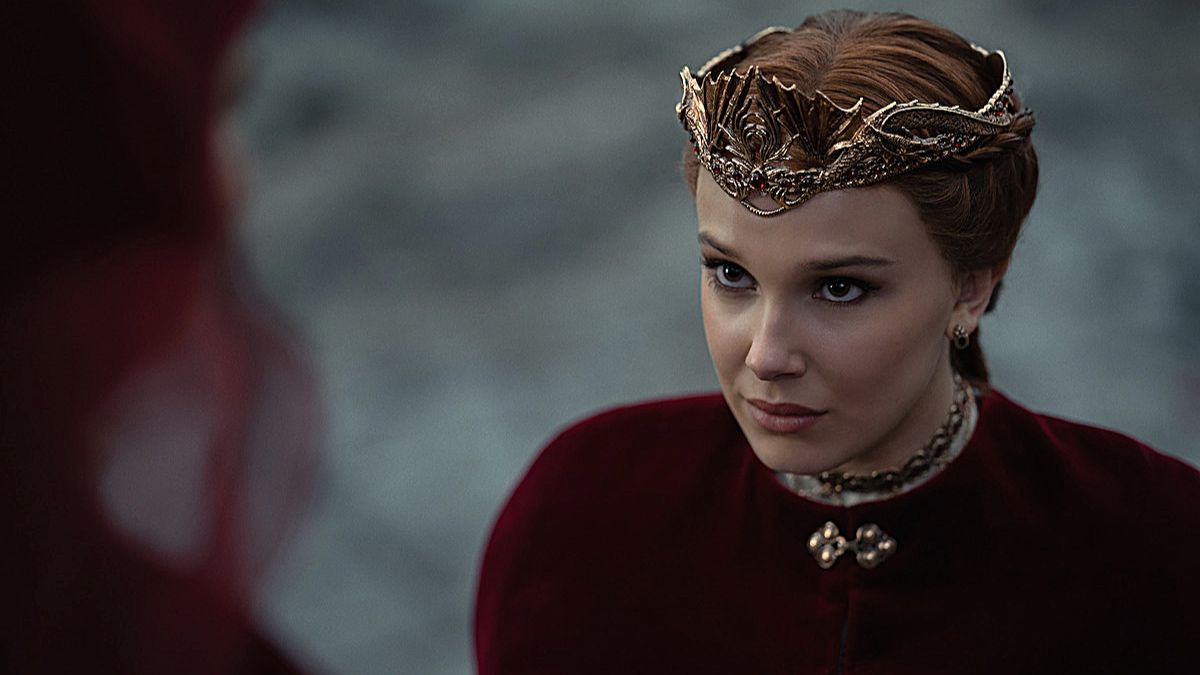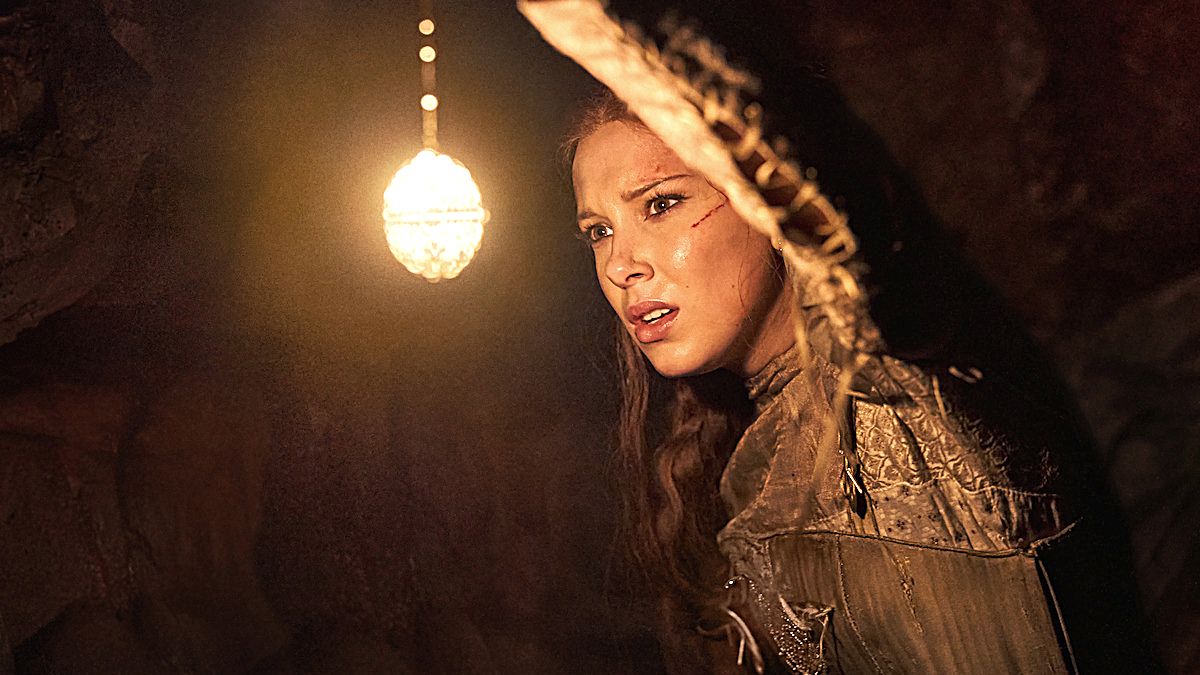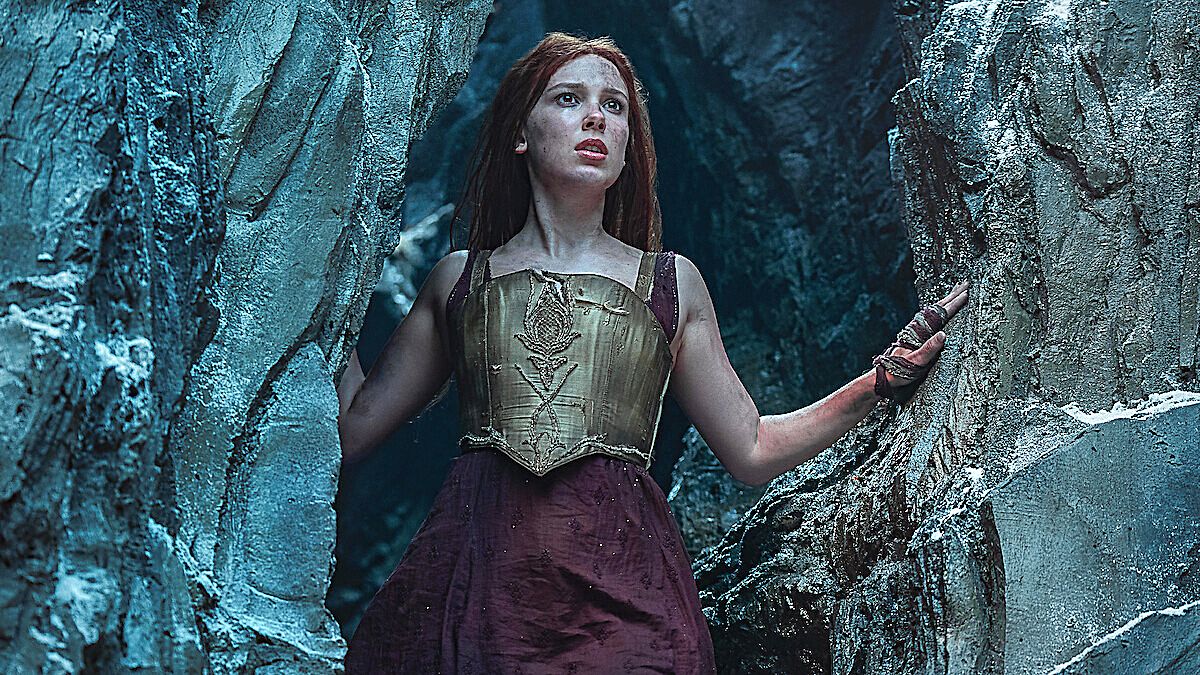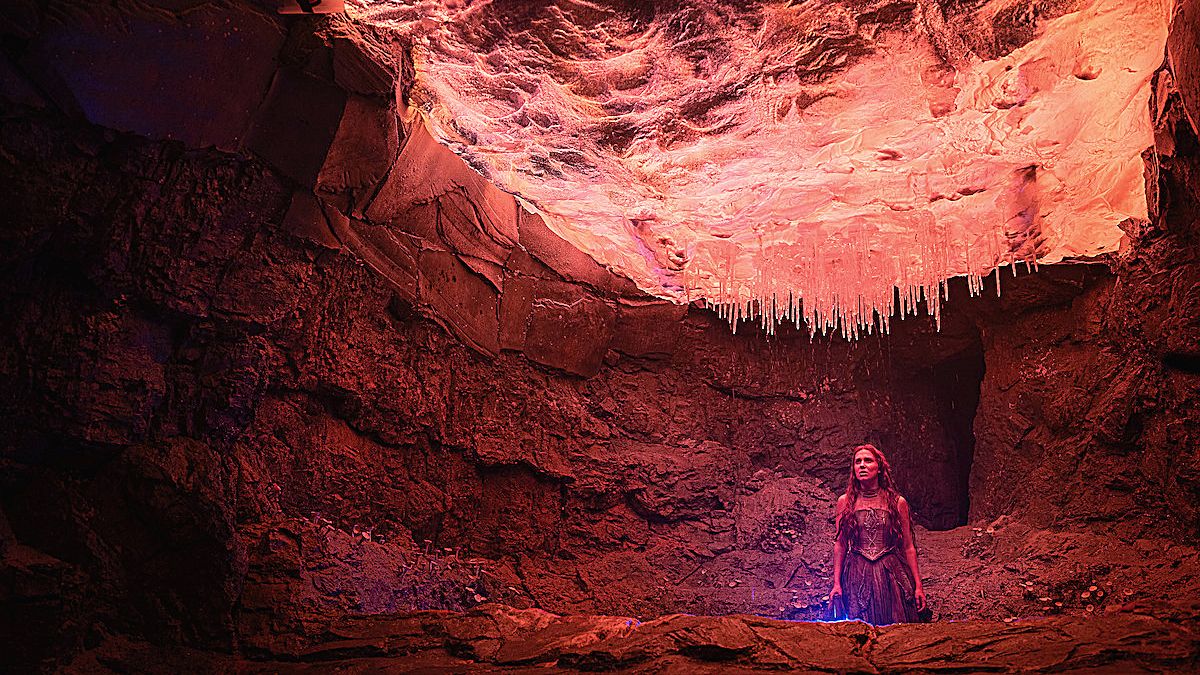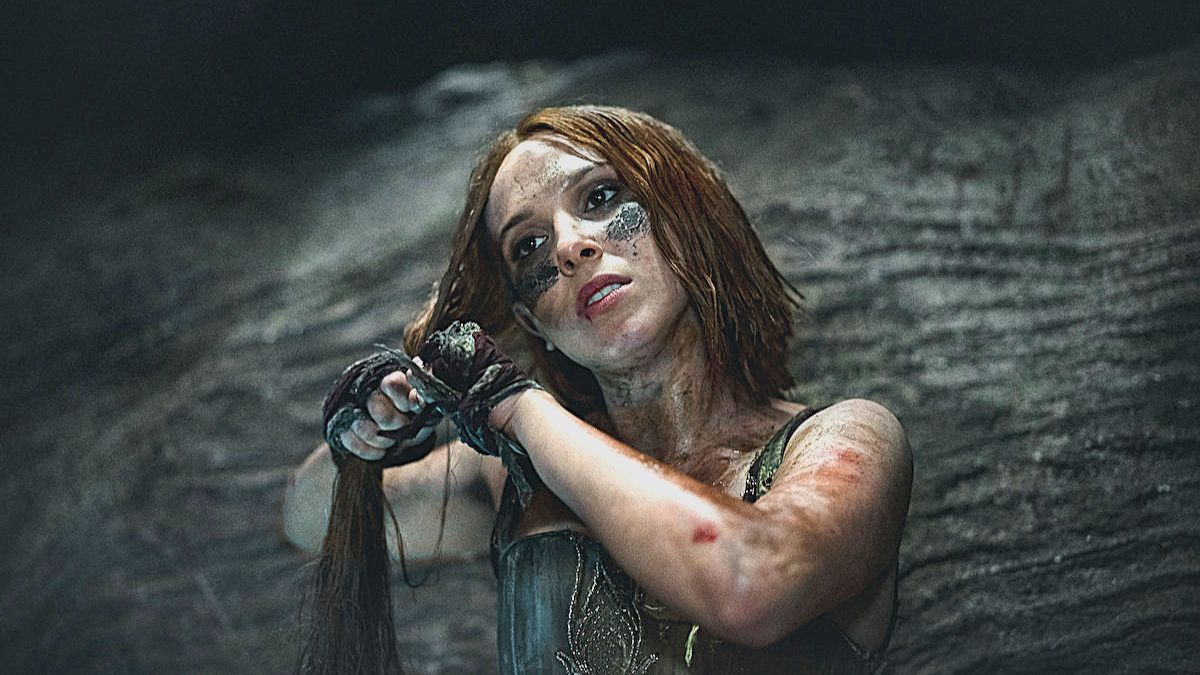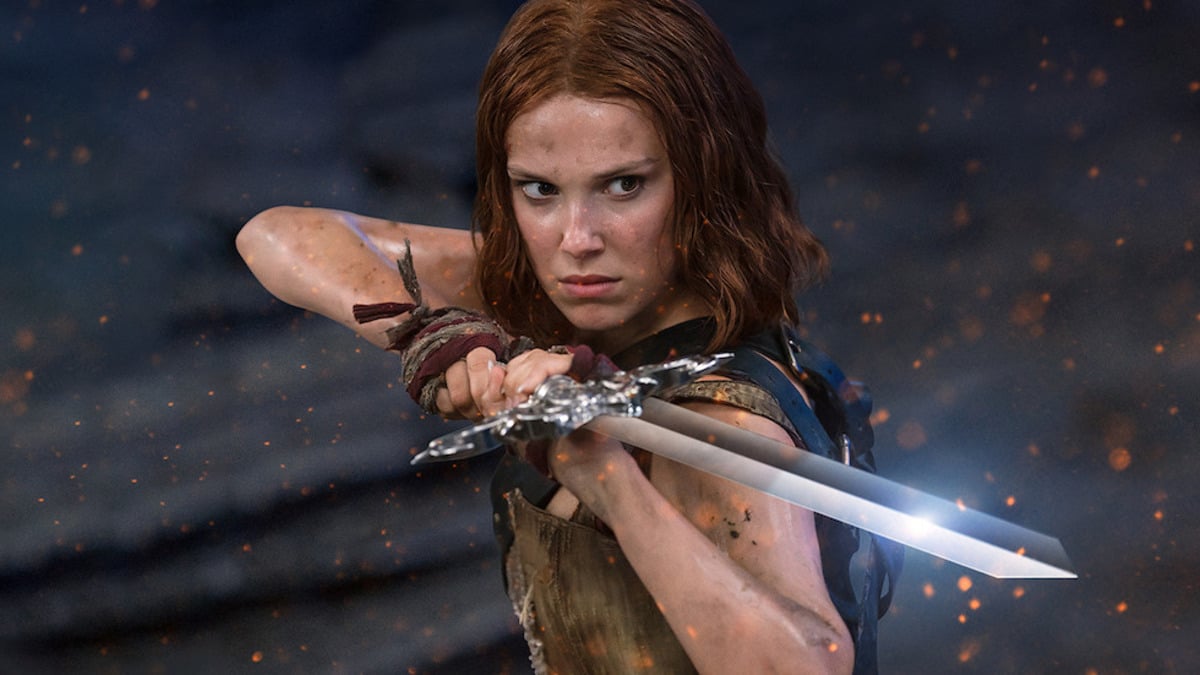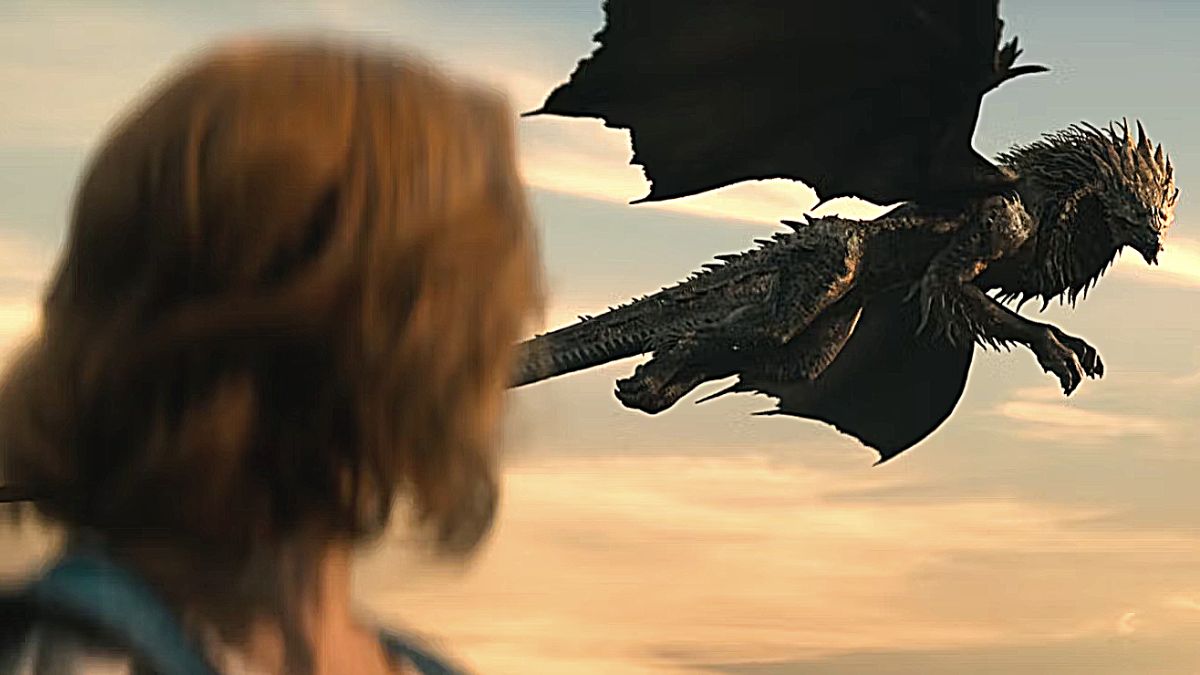Millie Bobby Brown takes on the fearless Princess Elodie in Netflix’s action fantasy film Damsel, which sets out to flip the concept of the traditional fairytale on its head.
In Damsel, Elodie’s village of Inophe has been struck by hunger and poverty, leading her to accept the proposition of a wealthy royal family from a much more prosperous land called Aurea, represented by the lush green scenery of the Portuguese Douro Valley, to marry its prince (Nick Robinson). What Elodie didn’t know, however, is that the union was a ploy to make her the latest victim of a generations-long family curse.
She learns that, once upon a time, the Aureans had been attacked by a menacing beast (an unnamed dragon voiced by Shohreh Aghdashloo) and had struck a deal with it that she would not attack again if they provided three daughters as sacrifices every generation. That is not the final plot twist in Damsel, though, because the kingdom is hiding lies within lies, and the true answers ultimately become Elodie’s saving grace.
How does Damsel end?
For all its faults, Damsel does attempt to subvert the tropes of the fairytale genre in ingenious ways. The first, of course, is in the act of Elodie saving herself instead of needing to be rescued. But director Juan Carlos Fresnadillo and writer Dan Mazeau didn’t want to stop there, so they made her journey all the more meaningful by giving it an unconventional ending.
Yes, after much perseverance and resilience, Elodie escapes the dragon cave by climbing up a rope her dad had used to access it in the hopes of saving his daughter and receiving her forgiveness. But, when Robin Wright’s evil queen kidnaps Elodie’s younger sister Floria to use as a second sacrifice, she is forced to re-enter the cave and finally engage in battle with its vengeful keeper. According to Mazeau, transitioning from Elodie as the damsel in distress to becoming her baby sister’s rescuer adds an extra layer to this rethinking of the “traditional knight-in-shining-armor stories.” “Part of that is not just saving yourself but also becoming the savior for somebody else,” the writer told TheWrap. The evolution sees Elodie completely evolve from someone struggling to save herself to a hero capable of saving not just herself but others as well.
Then there’s the dragon. In your typical fantasy epic, the slaying of the beast acts as the narrative climax that finally sets the hero free. For the makers of Damsel, however, that would be an easy way out. So, when Elodie goes back to the cave to save Floria, she doesn’t do it by killing the dragon, who is a thinking, talking creature, but rather by reasoning with her.
The princess, coming across the corpses of three small dragons, realizes the reason why her opponent is so thirsty for killing is that her deceitful husband’s even more deceitful ancestors had not been the victims of an attack, but the perpetrators. The dragon, it turns out, hadn’t come to the village to terrorize its inhabitants, but rather Aurea’s past king and his lackeys had invaded her home in an attempt to tame her, but were only a match for her newborn offspring, ruthlessly killing them moments after they had hatched.
Elodie used this information as common ground to connect with the dragon, who itself was unaware the women being sent down to the cave were not descendants of the royal family, but innocent women tricked by them into marrying into the kingdom. So they charged against their common enemy and wreaked havoc on the wedding ceremony between the prince and his future third victim. After getting revenge and keeping another woman from being manipulated and lied to, the two sail off into the sunset, together — the dragon healed from her heartbreak and unafraid, again, of leaving her cave, and Elodie, having mastered her own destiny, on her way to chase her dream of seeing the world.
“It felt like, in some ways, they were both victims of this situation, and so it felt right for both of them to come out changed, both of them to survive. “It’s an open question what their relationship is going to be. They’ve surpassed what their relationship was, this antagonistic situation that they were both thrust into, essentially. And now, for the first time Elodie is free in a way that she never has been before, and the dragon is free in a way that it never has been before. They both have an opportunity to chart their own course.”
Damsel is available to stream on Netflix. Read We Got This Covered’s review of the movie.

